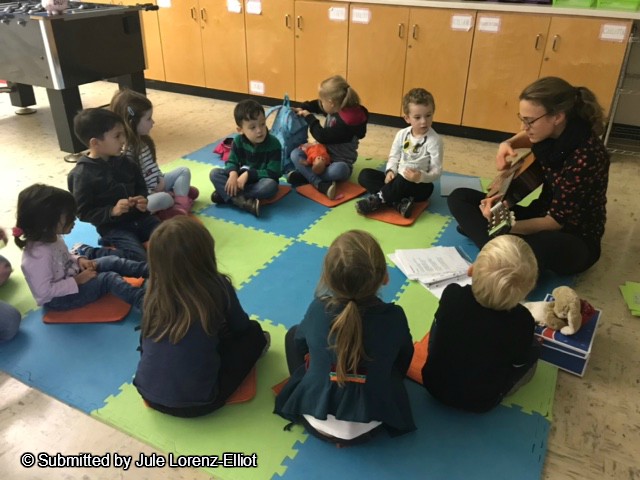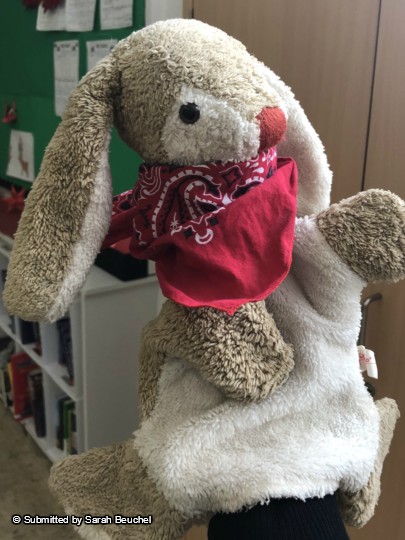Feb 15, 2018 - Kerstin Kormendy for SoGerman
Over the past 12 years, a dedicated group of German expats and German-Canadians established a growing network in Toronto that offers opportunities to come together, connect, and combine cultures.

“Brösel, Brösel, he didn’t say goodbye,” the class tells teacher Sarah Beuchel at the end of class. With floppy ears, a red nose, and a trendy neckerchief, the hand puppet is Ms. Beuchel’s assistant in the weekly Deutsch-AG meeting, an hour-long German class for three to six-year-old children at the German International School Toronto. Every Wednesday afternoon, Ms. Beuchel and a group of 10 to 16 children sing, craft, read stories and practice their German.
“The world is colorful,” says Ms. Beuchel. “Here in Toronto, it’s great to see how so many people with diverse cultures and different languages can live peacefully. And if you know the language of a different country, you can get so much closer to the real life. Language is the key.”
The German International School Toronto opened its doors last year to the Deutsch-AG, initiated by Jule Lorenz-Elliot, organizer of German Mamas and Papas in Toronto, a growing network for German-Canadian families (read more about it here). The Deutsch-AG is also one of the many initiatives the school plans this year.
“We want to be a home for the German language, for encounters and common learning experiences,” says Kathrin Sander, new school principal. “This is a wonderful opportunity for us to meet and get to know the members of the German-Canadian community in Toronto.

Ms. Sander arrived in Canada last summer. She guided and led a school in the North-German seaport city Hamburg for nine years. Looking for new challenges, she moved across the ocean, knowing Canada from the stories her father, a seafarer, had told her as a child.
“Children who grow up multilingual have very different qualifications to go out into this world,” she says. “Language is the access to diverse cultures, to worldly education and to participate in a global society.”
About 185 million people worldwide speak German. The students of the Deutsch-AG grow up in German expat, German-Canadian or multicultural families with roots or a strong interest in Germany. Some of the children were born outside of Germany, some of them are “true Torontonians”, but all of them have their own story and connection to Germany.
While every child experiences different exposure to the German language, the child-oriented rituals and playful exercises during class help to overcome initial shyness in speaking the language.
“Sometimes they don’t even notice that they’re using the German language,” says Ms. Beuchel. “When children, who didn’t want to speak in German, start talking during a game, we achieved a goal.”
She highlights the children’s different approach to learning German as an additional language compared to their peers in Germany.
“German is not a foreign language for the children,” she says. “It’s part of their identity. It’s the language of the grandmother, the parent, the book language.”